SINGAPORE: More than half of 2,023 respondents polled across 11 Southeast Asian countries would side with the United States over China “if the region were forced to align itself with one of the two strategic rivals”, according to findings published in an annual think tank survey.
The State of Southeast Asia 2025 report, based on polls conducted by the ISEAS-Yusof Ishak Institute (ISEAS) between Jan 3 and Feb 15 and released on Thursday (Apr 3), examined regional perceptions on strategic issues and the influence of major powers.
When asked to pick between the US and China, 52.3 per cent of respondents favoured the US while 47.7 per cent supported China.
The ISEAS report also added that more than half of respondents believed the Association of Southeast Asian Nations (ASEAN) should “enhance its resilience and unity to fend off pressures from the two global powers”.
“This narrow margin underscores ASEAN’s delicate balancing act between the two major powers as economic interdependence with China competes with security considerations and more comfortable historical ties to the US,” the report said.
The latest findings have put Washington ahead of Beijing again after being Southeast Asia’s preferred choice of strategic partner for four straight years.
Southeast Asia with its 680 million-strong population, is becoming increasingly crucial to both US and China's interests.
This year's ISEAS report surveyed 2,023 people across 10 ASEAN member states and for the first time, included inputs from respondents in Timor-Leste which hopes to become a full member of ASEAN in 2025.
Respondents included researchers, media representatives, non-government organisations (NGOs), regional government officials, private sector representatives and members of civil society.
US support was found to be the strongest among respondents in Vietnam and the Philippines - “likely driven by ongoing territorial disputes with China in the South China Sea, as well as growing security partnerships with Washington”, the report said.
South China Sea tensions topped the list of geopolitical concerns in the region, followed by criminal scam syndicates and concerns over new US leadership.
Support for China, driven by “deep economic ties, trade dependencies as well as growing discontent with US policies”, was found to be strongest among respondents from Indonesia - followed by those in Malaysia, Thailand, Brunei and Laos.
Confidence in Washington had further strengthened around the region, following the re-election of President Donald Trump, the ISEAS report said.
But it cited concerns from more than half of survey respondents over President Trump’s unpredictable character, saying it would “add uncertainty to US engagement with the region”.
CHINA STILL SEEN AS MOST INFLUENTIAL
But despite Washington's narrow lead, China remains the most influential economic and political-strategic power in Southeast Asia - “outpacing the US by significant margins, albeit with some decline in its overall economic and political-strategic influence”.
“China remains the top choice among respondents across ASEAN, except for the Philippines, where the US continues to be seen as the most influential political and strategic power,” the ISEAS report said.
The country is also the most influential economic power, garnering 56.4 per cent of polls among respondents in Thailand, Malaysia and Singapore.
“China’s ranking highlights its deep economic ties with the region, particularly through trade and infrastructure investments under the Belt and Road Initiative (BRI),” ISEAS said, adding that Beijing's "strategic influence remains firmly embedded in the region".
Despite positive perceptions, concerns continue to grow over Beijing's political and strategic influence in the region, with nearly seven in 10 ASEAN respondents said they remained wary.
Latest findings showed that sentiment from respondents in Laos, a country that once regarded China as the region’s most influential economic power, took a “significant hit” - dropping to 49 per cent from 77.5 per cent in 2024.
“Akin to previous years, a majority of ASEAN-10 respondents (61.9 per cent) are worried about China’s growing regional influence, down from 67.4 per cent in 2024,” the report said.
“This is most strongly felt by Thailand, Vietnam and the Philippines. Meanwhile, Cambodia, Brunei, and Malaysia are the most welcoming of China’s economic influence.”
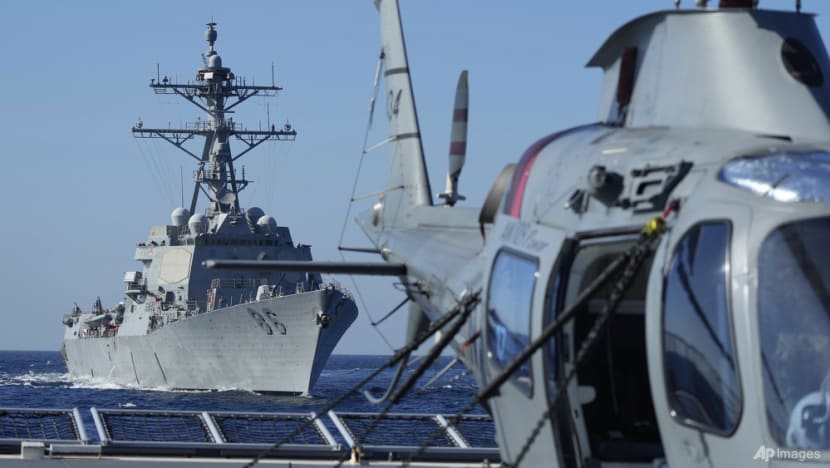 US and Philippine naval forces participate in drills off a disputed South China Sea shoal on Mar 28, 2025. (AP Photo/Aaron Favila)
US and Philippine naval forces participate in drills off a disputed South China Sea shoal on Mar 28, 2025. (AP Photo/Aaron Favila)
Respondents considered Japan and the EU important partners for the region. India also made notable strides in this year’s rankings - a rise could reflect its “increasing engagement with the region”.
But when it comes to upholding international law, the US is still seen as the leading actor in the region, with “particularly strong” sentiment coming from respondents in countries like Cambodia, Vietnam and the Philippines.
“Despite concerns over President Trump’s transactional approach and US withdrawal from international organisations, ASEAN-10 respondents continue to see the US as a key defender of global governance,” the report said.
Earlier this week, a South China Morning Post article reported that Chinese President Xi Jinping would visit Vietnam, Malaysia and Cambodia in mid-April - marking his first overseas trip of the year and his first to Southeast Asia since he last visited Vietnam back in 2023.
If confirmed, the trip will come at a time of increasing US-China rivalry and regional uncertainty.
“As competition between China and the US intensifies in Southeast Asia, the majority of ASEAN-10 respondents believe ASEAN should enhance its resilience and unity to fend off pressure from the two major powers,” ISEAS said.
It added that this sentiment was particularly strong among Thai respondents, as well as those from the Philippines, Indonesia and Vietnam. It “underscores a regional preference for … maintaining ASEAN’s strategic autonomy”, it said.
TRUST ISSUES?
Respondents this year still remain largely divided about their trust in China as a superpower, ISEAS said, noting that rival Japan was found to be the region’s most trusted major power, followed by the EU, the US, China and India.
“Across the board and without exception, levels of trust in Japan outstripped levels of distrust,” the ISEAS report said, adding that the country also ranked first in terms of soft power - with 33 per cent of respondents indicating it as the region’s top choice for tourism.
"The largest proportion of respondents continue to view Japan as a responsible stakeholder that respects and upholds international law, a perception widely shared in Singapore, Vietnam, Myanmar, and Brunei," it added.
Respondents in Vietnam and the Philippines, where maritime tensions remain unresolved, expressed especially high levels of distrust towards China over Beijing's "use of economic and military power to threaten national interest and sovereignty".
Beijing’s interference in domestic affairs, as well as its use of economic tools and tourism to punish foreign policy choices, were cited as concerns by respondents in Thailand and Myanmar, countries whose economies depend massively on Chinese trade and tourism.
However, there were countries that expressed trust in China - crediting its vast economic resources and Beijing’s political will “to provide global leadership”, the ISEAS report said.
“Others aligned with views that Beijing was a responsible stakeholder or felt their country’s values aligned with China’s.”
Trust in the US remained strong overall and had even increased, ISEAS said - rising to 47.2 per cent from 42.4 per cent last year. US distrust also dropped despite scepticism around Trump and his “America First” policies.
A sharpest increase came from respondents in Laos, where confidence in Washington surged by over 30 percentage points.
FUTURE OF ASEAN
Looking ahead, more than half of ASEAN respondents expect relations with China to improve over the next three years, with top priorities including resolving territorial and maritime disputes peacefully and respecting national sovereignty.
Boosting bilateral trade also remains a key concern, as well as deepening mutual understanding through people-to-people relations, the ISEAS report added.
Similar to findings from 2024, respondents remain largely optimistic about the trajectory of relations with China over the next three years - with 50.3 per cent of respondents believing ties will improve.
Among them, around 15 per cent foresee significant progress, while 35.2 per cent anticipate moderate gains.
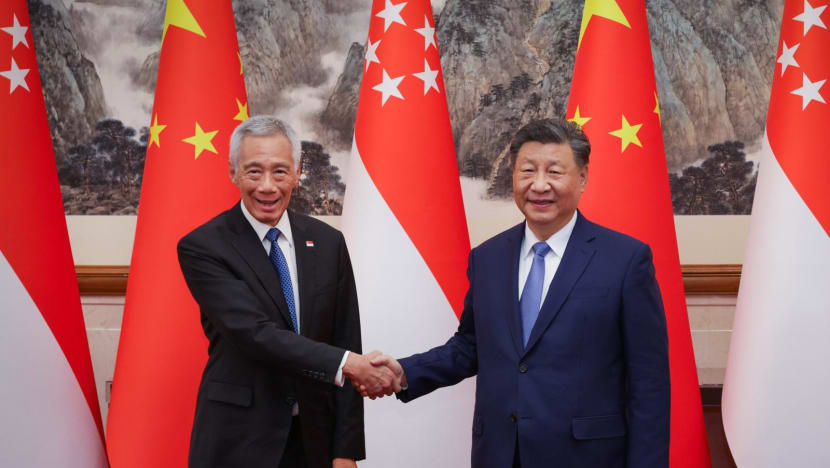 Singapore Senior Minister Lee Hsien Loong pictured with Xi Jinping in Beijing on Nov 26, 2024. (Photo: Ministry of Digital Development and Information)
Singapore Senior Minister Lee Hsien Loong pictured with Xi Jinping in Beijing on Nov 26, 2024. (Photo: Ministry of Digital Development and Information)
Optimism remains strongest in Laos (68.9 per cent) followed by Indonesia (67.8 per cent) and Malaysia (63.8 per cent), where China-backed infrastructure and economic projects are expanding.
Respondents were also generally positive about relations with the US even under Trump, with 46 per cent expecting ties to improve and optimism remaining particularly high in Vietnam, Laos and Cambodia - suggesting growing confidence in their engagement with Washington.
Asia’s newest nation Timor-Leste’s confidence in Beijing stood out, with nearly 70 per cent of respondents expecting Chinese relations to improve - a sign of China’s growing role as a development partner in the region.
When asked about which “third parties” ASEAN might turn to amid the intensifying US-China rivalry, the European Union emerged as the top choice with 36.3 per cent, followed by Japan and India.










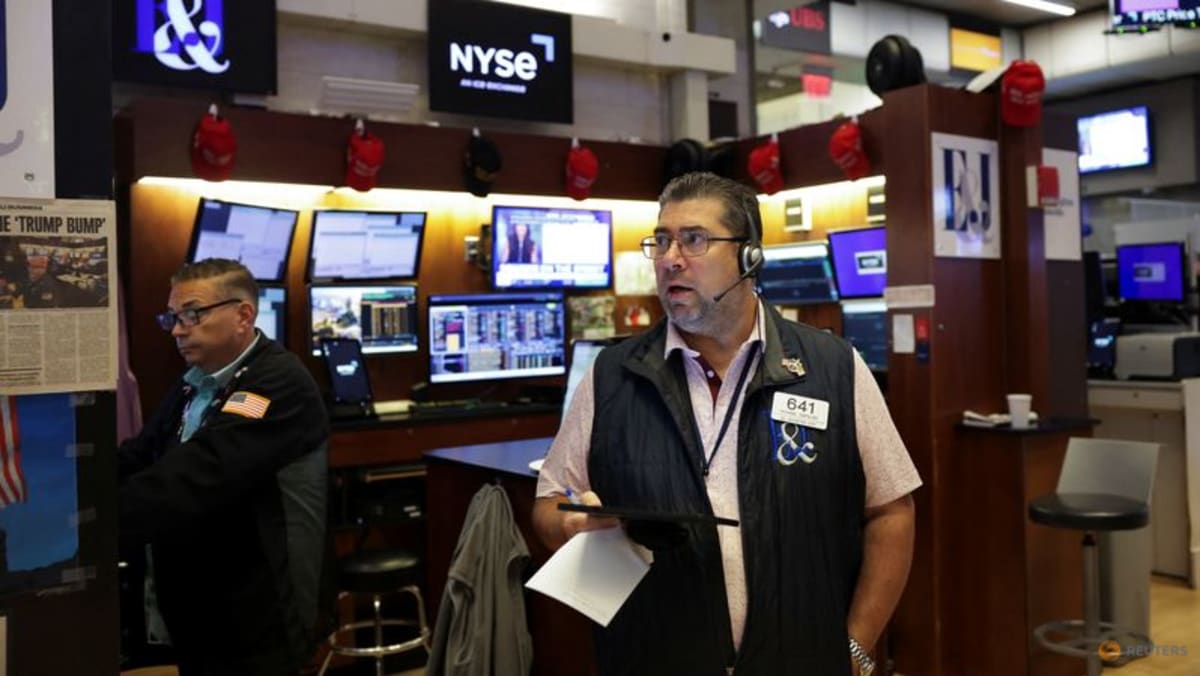


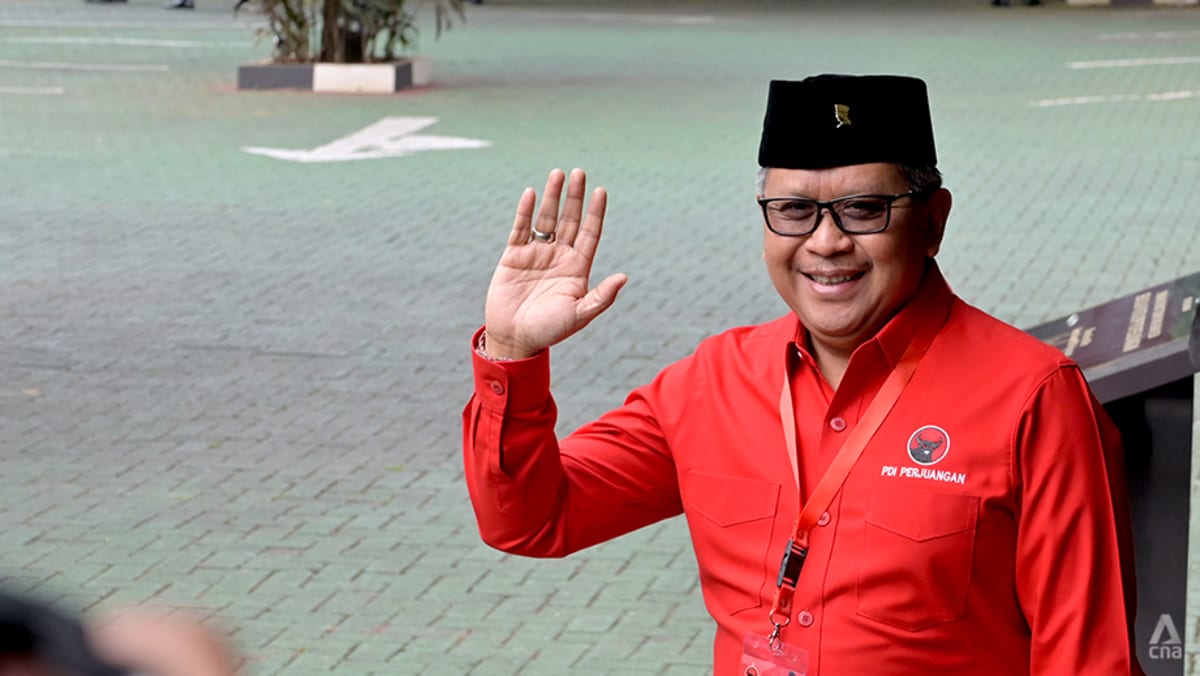
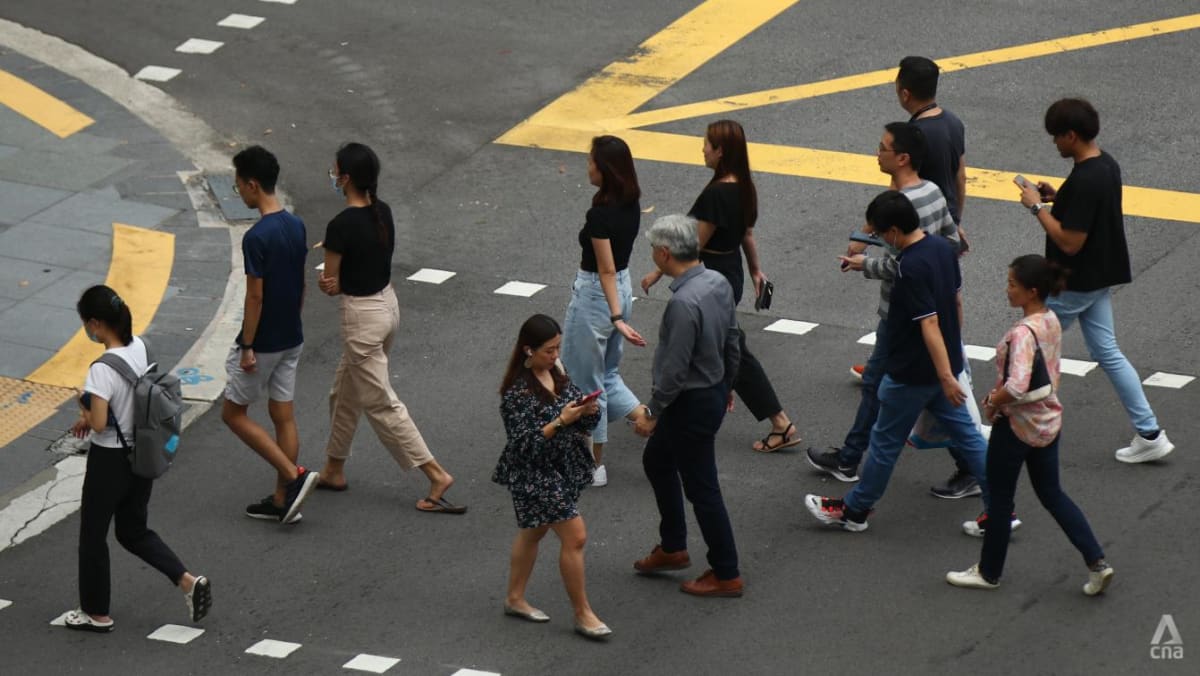

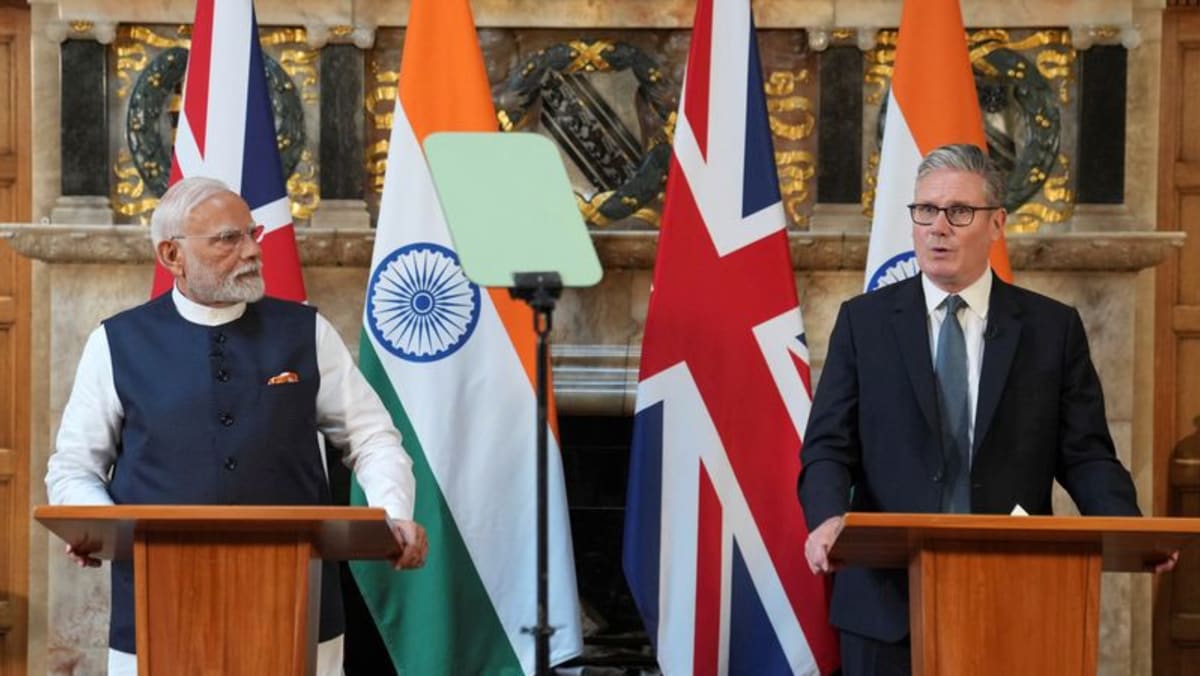

















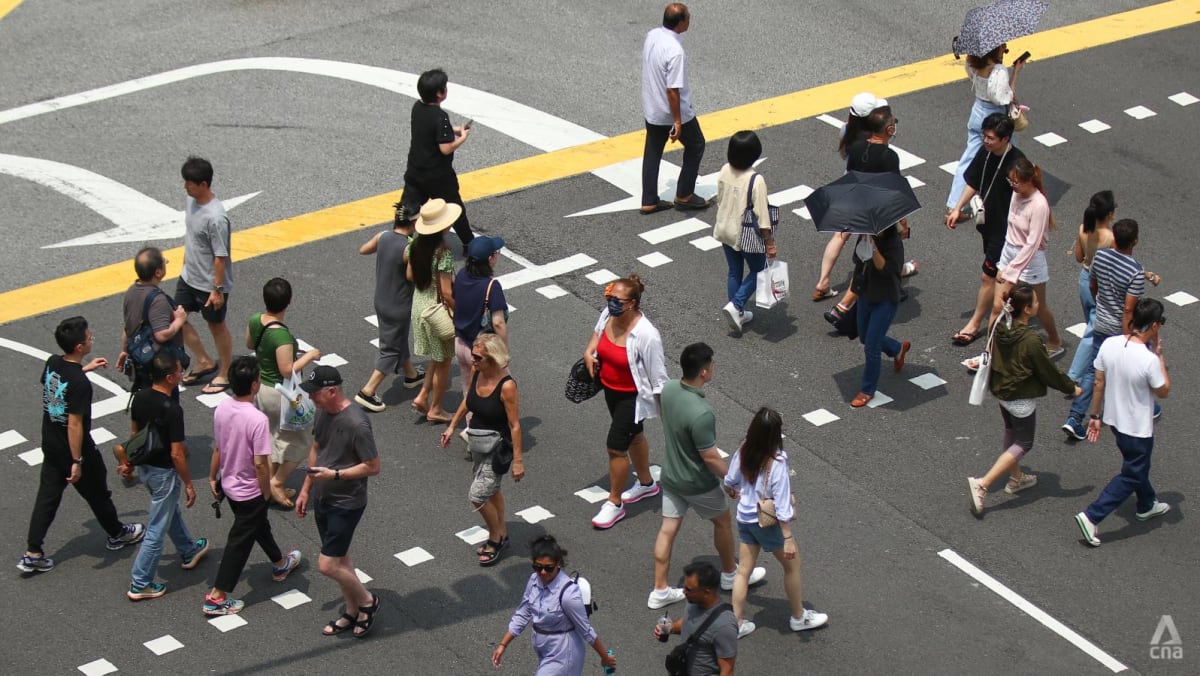










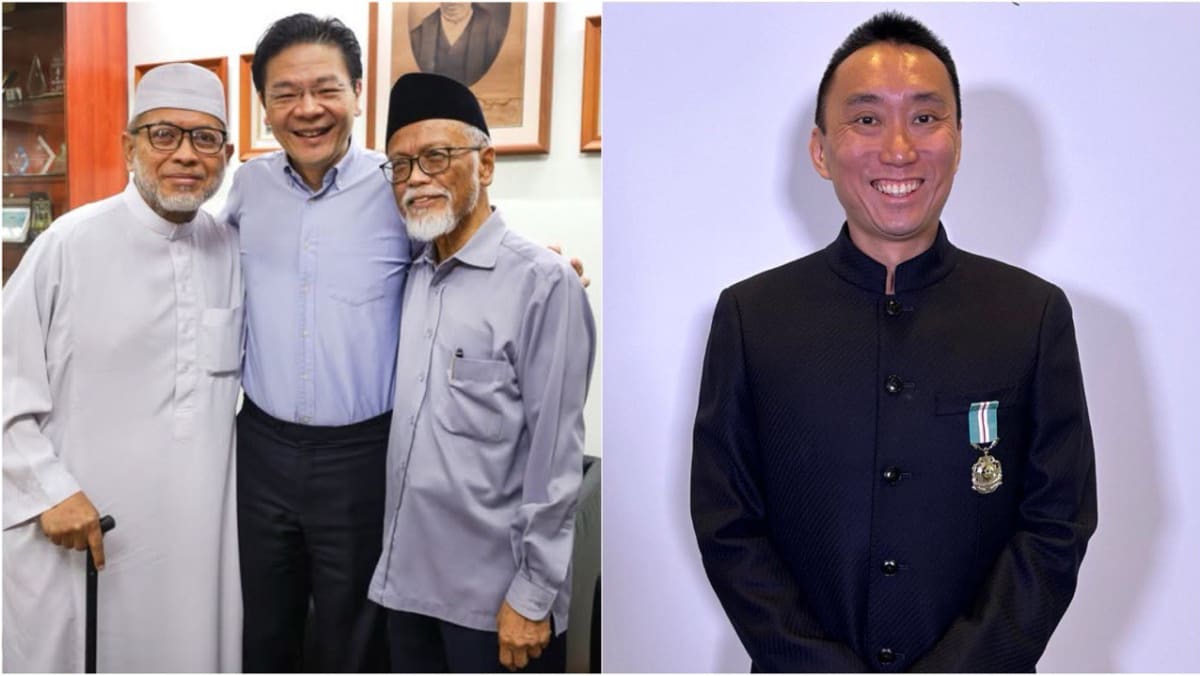


.png?itok=erLSagvf)

